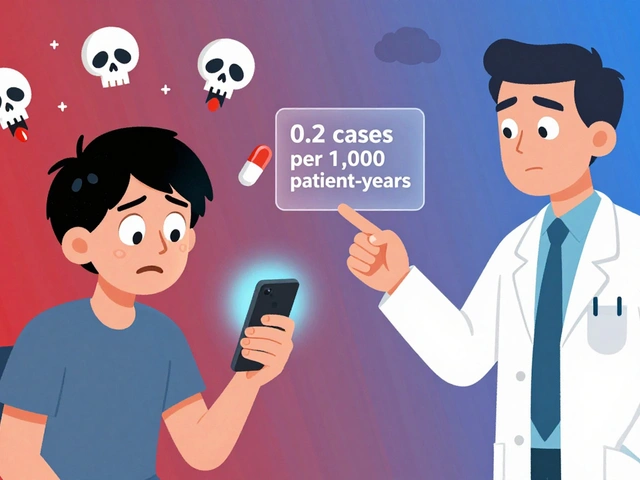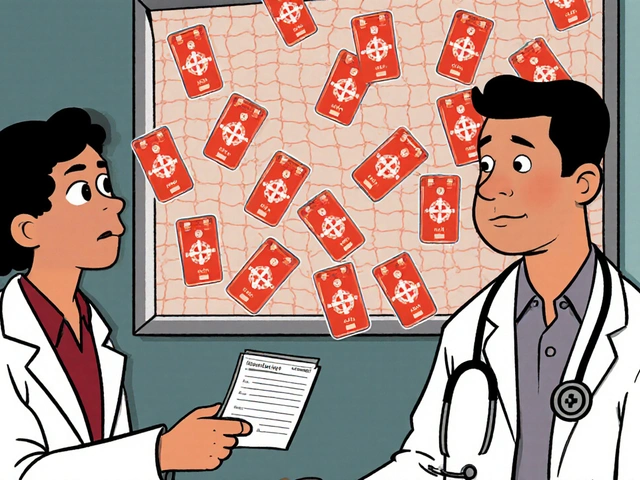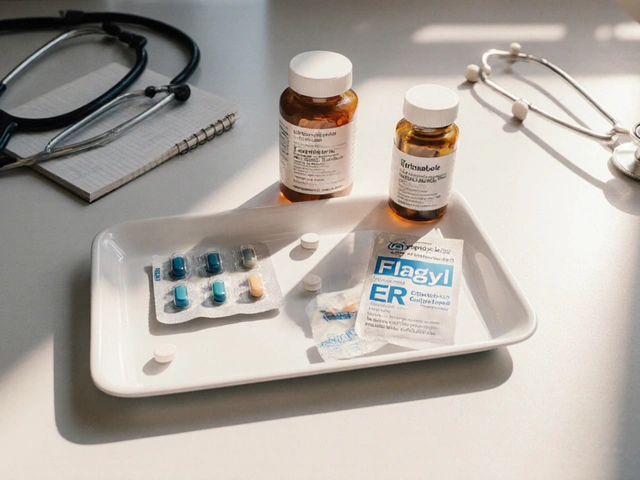Health Tips, Medication Facts, and Wellness Advice
When it comes to health, knowing what your medications do and how to use them safely can make all the difference. Whether you’re managing blood pressure with Norvasc or tackling prostate issues with Hytrin, understanding the ins and outs of these medications helps you stay in control. For example, Norvasc is common for high blood pressure, but knowing its side effects and how it affects your heart health keeps you informed. That way, if your doctor suggests it, you’re ready—not caught off guard.
It's not just prescription meds, either. Some natural remedies, like Winter's Bark or ginger for mild vertigo, offer alternatives or complements to traditional treatments. These options can help with everyday issues and fit into a balanced wellness routine. But remember, natural doesn’t always mean risk-free, so it’s smart to grasp how they work and when to talk to your healthcare provider.
Common Concerns: Side Effects and Safe Usage
Side effects pop up in almost every medication story. Take Vastarel for heart conditions or Premarin for menopause relief; both come with benefits and risks. Knowing what to watch for helps prevent surprises. For instance, if you're using spironolactone for acne or heart health, mixing it with alcohol needs caution. Real talk: these details aren't just fine print—they affect your daily life and safety.
Managing Chronic Conditions and Staying Informed
Chronic issues like diabetes, overactive bladder, or autoimmune diseases demand ongoing care and up-to-date info. Articles that compare heart medications like SGLT2 inhibitors to Glipizide offer insight into protecting your heart better. For those traveling with conditions like overactive bladder, tips on managing meds like solifenacin on the go make trips less stressful. Plus, understanding links between diseases, like Hepatitis C and autoimmune disorders, helps in spotting problems early. Staying informed isn't just smart—it's empowering.
At GlobalMeds, it’s about cutting through the noise with reliable, easy-to-understand info. Whether you’re curious about medications, natural supplements, or secure ways to chat with your healthcare provider, you’ll find guidance that feels like a conversation with a knowledgeable friend. Health can be complex, but your path to feeling better doesn’t have to be.
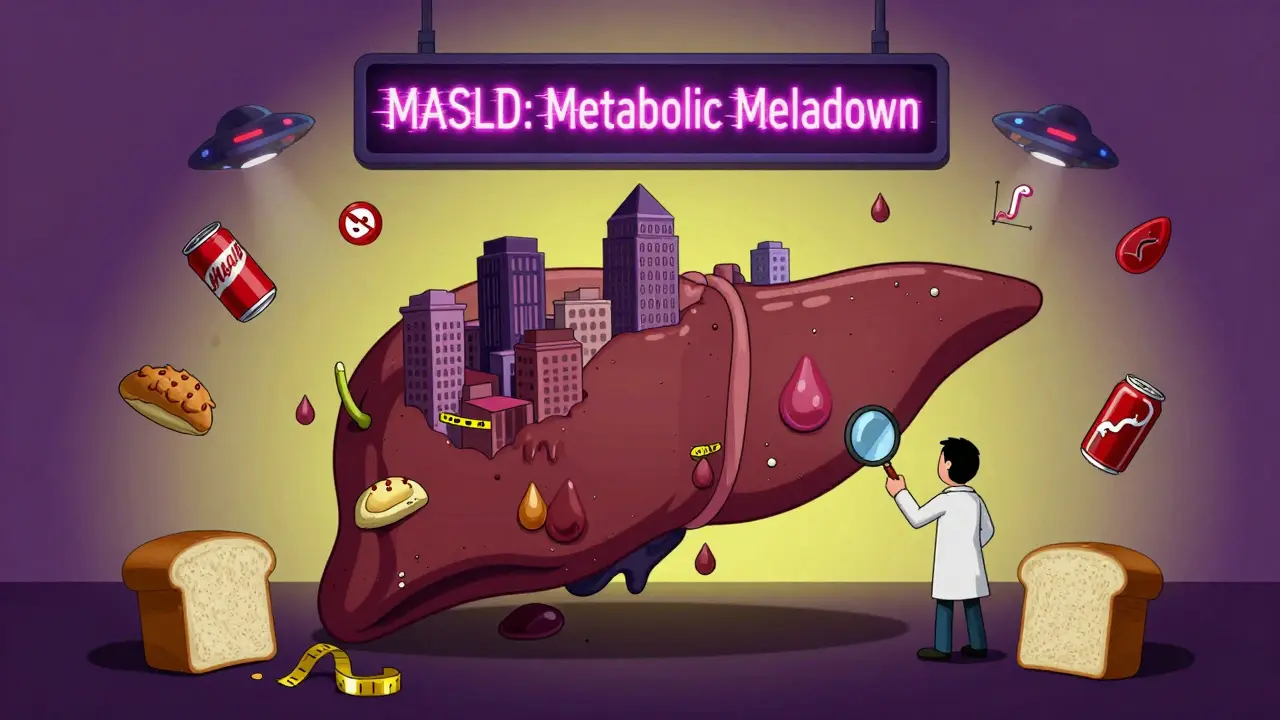
Nonalcoholic Fatty Liver Disease: Risks and How to Prevent It
MASLD (formerly NAFLD) affects 1 in 4 adults worldwide and is the most common chronic liver disease. It’s preventable and reversible with lifestyle changes - no drugs needed. Learn the real risks and proven strategies to protect your liver.
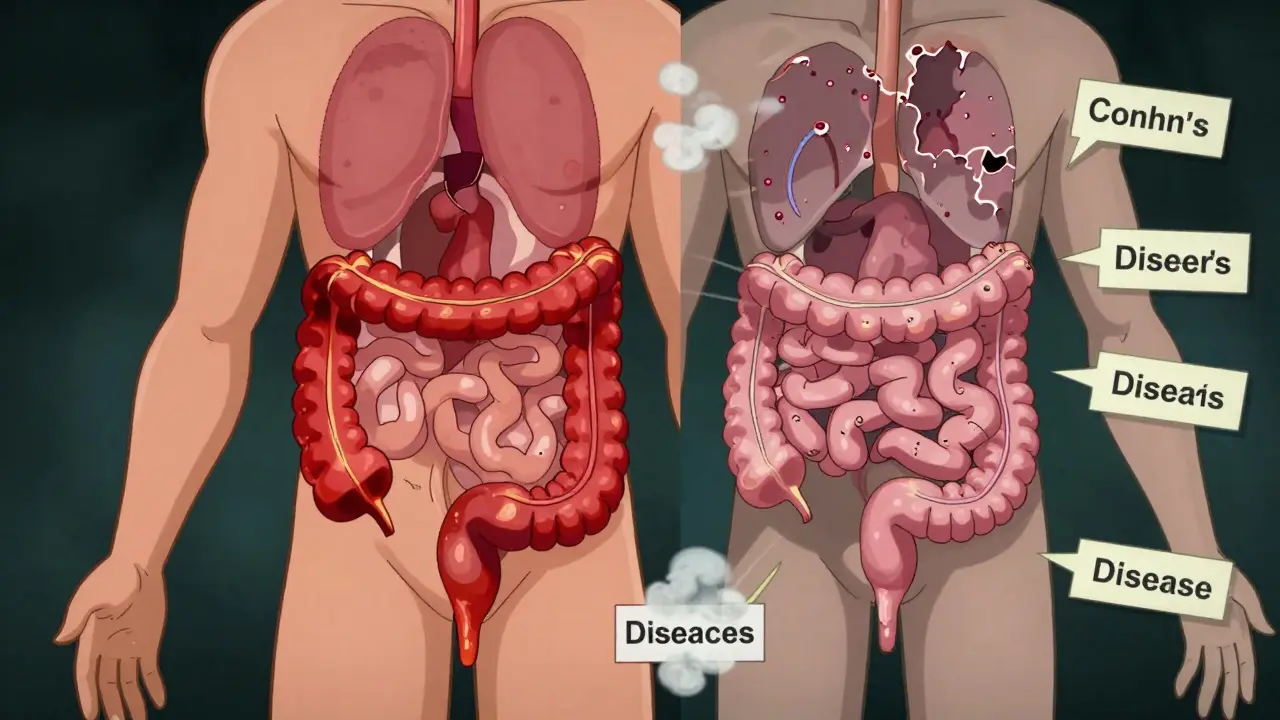
Inflammatory Bowel Disease: Crohn’s Disease vs. Ulcerative Colitis
Crohn’s disease and ulcerative colitis are two distinct forms of inflammatory bowel disease with different locations, depths of inflammation, complications, and treatments. Understanding the differences is key to managing symptoms and choosing the right care.

Eczema and Allergies: Understanding the Atopic March and How to Protect Your Child’s Skin Barrier
Eczema often starts the atopic march - a chain of allergic conditions like food allergies and asthma. Protecting your child's skin barrier early with moisturizers and safe allergen introduction can reduce the risk of progression.
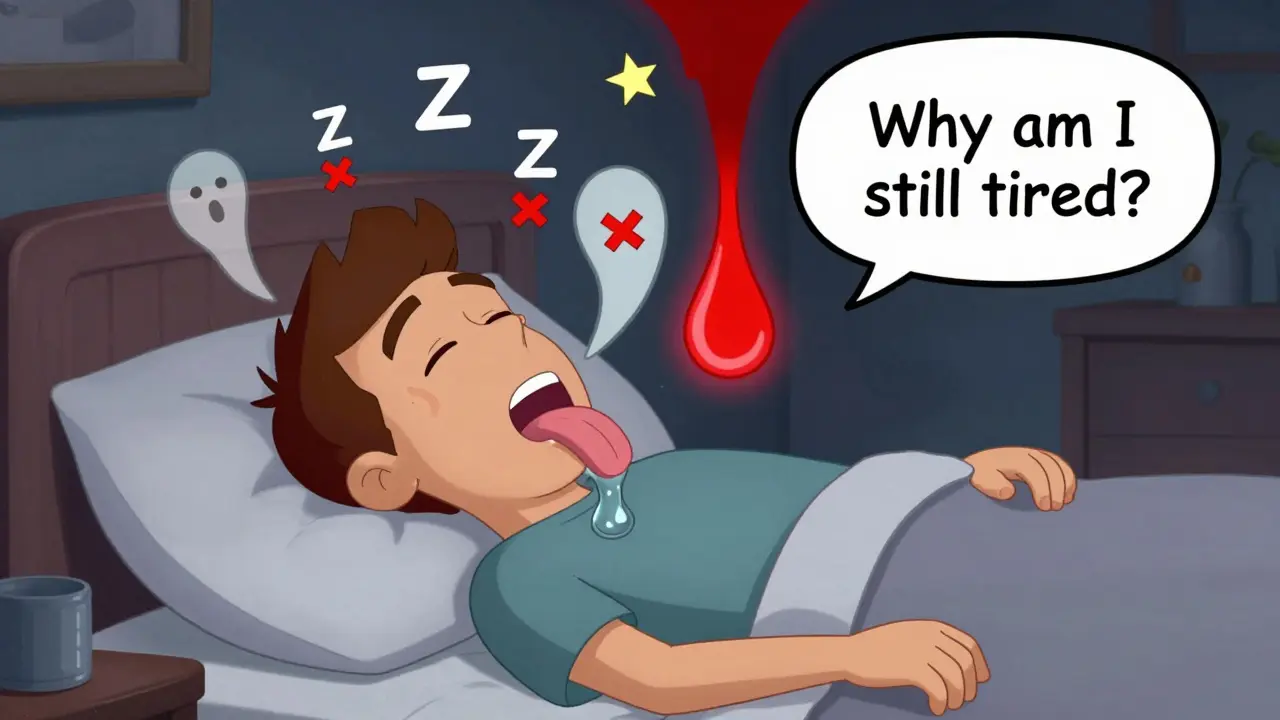
Supine vs. Side Sleeping: Which Position Stops Apnea Best?
Side sleeping can cut sleep apnea events in half for many people. Learn how positional therapy works, what devices actually help, and whether it’s right for you if you sleep on your back.

When to Call Poison Control vs. Emergency Services for Overdose
Learn when to call Poison Control versus 911 during an overdose. Know the critical signs that require emergency help - and when expert advice can safely guide you at home.

Diabetic Meal Planning: What to Eat and What to Avoid for Better Blood Sugar Control
Learn how to plan meals for diabetes using the proven Diabetes Plate Method. Discover which foods help stabilize blood sugar and which ones to avoid for long-term health and better energy.

Complex Regional Pain Syndrome: Understanding Burning Pain After Injury
CRPS causes intense burning pain after injury, often mistaken for normal healing. Learn the signs, triggers, and proven treatments to stop it before it becomes lifelong.
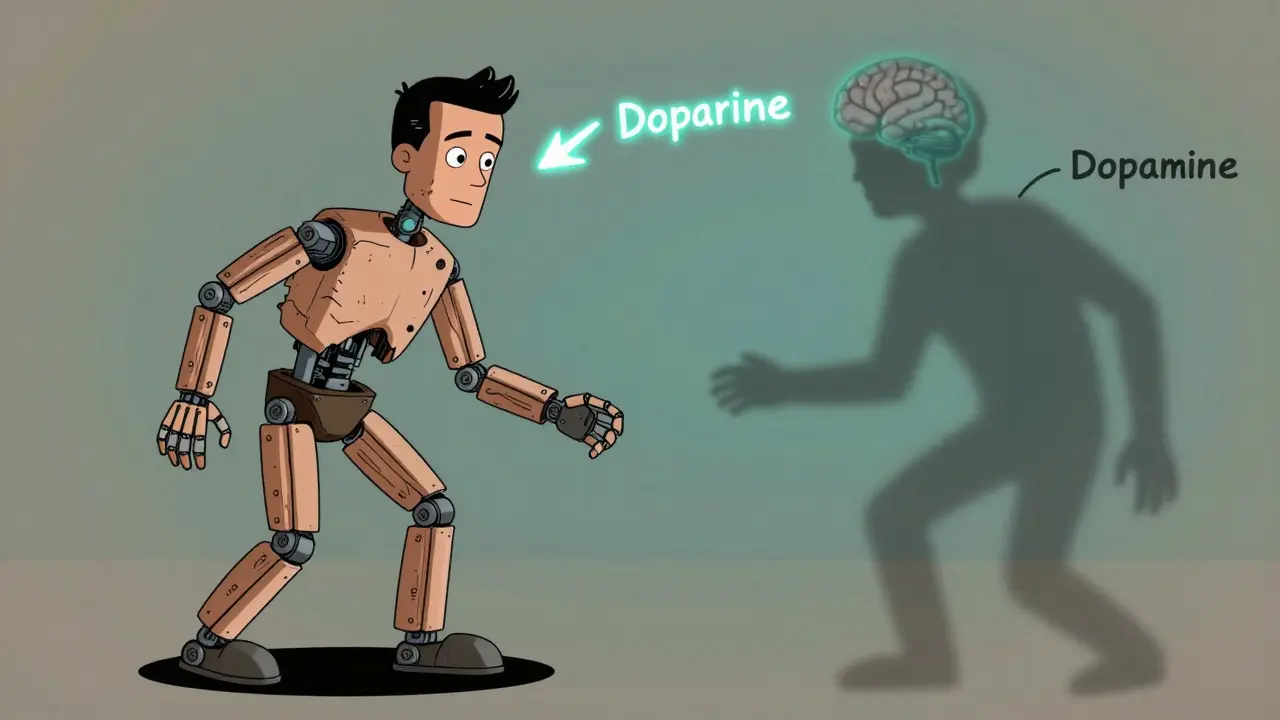
Parkinson’s Disease: Understanding Motor Symptoms, Medications, and Daily Living Challenges
Parkinson’s disease affects movement through tremors, stiffness, and slow motion. Medications like levodopa help, but long-term use brings side effects. Daily living requires exercise, therapy, and support to maintain independence and quality of life.

Peripheral Artery Disease: Symptoms, Diagnosis, and Treatment
Peripheral artery disease (PAD) causes leg pain during walking and raises your risk of heart attack and stroke. Learn the key symptoms, how it's diagnosed with a simple ankle test, and proven treatments that can help you walk again and live longer.

Keratoconus: How Rigid Lenses Restore Vision When the Cornea Thins
Keratoconus causes progressive corneal thinning, leading to blurred vision. Rigid gas permeable and scleral lenses restore sight by creating a smooth optical surface over the irregular cornea, offering a non-surgical solution for most patients.

Coronary Calcium Score: What CT Scans Reveal About Plaque Buildup in Your Arteries
A coronary calcium score uses a quick CT scan to detect calcified plaque in heart arteries - revealing hidden heart disease risk before symptoms appear. Learn what the numbers mean and how it changes treatment.
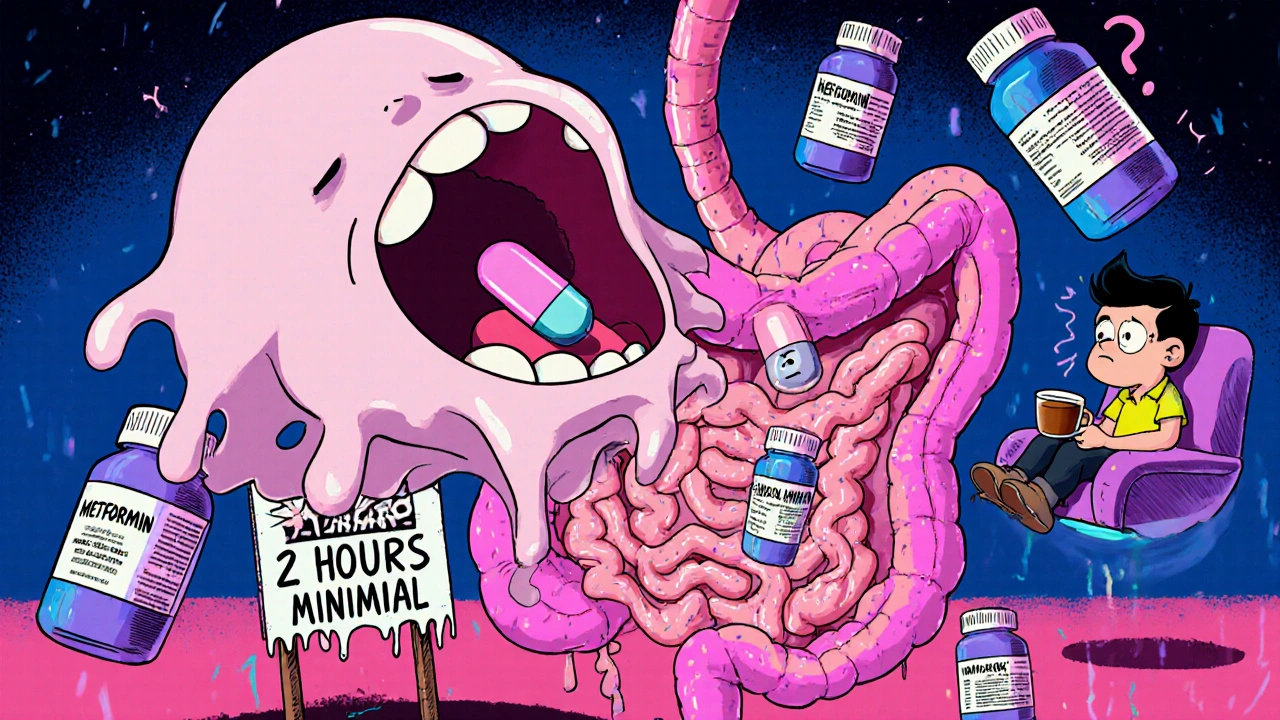
Fiber Supplements and Constipation: When to Take Them With Your Medications
Fiber supplements like psyllium help with constipation but can interfere with medications if taken at the wrong time. Learn the safest timing rules, dosing tips, and what to do if you accidentally mix them.

